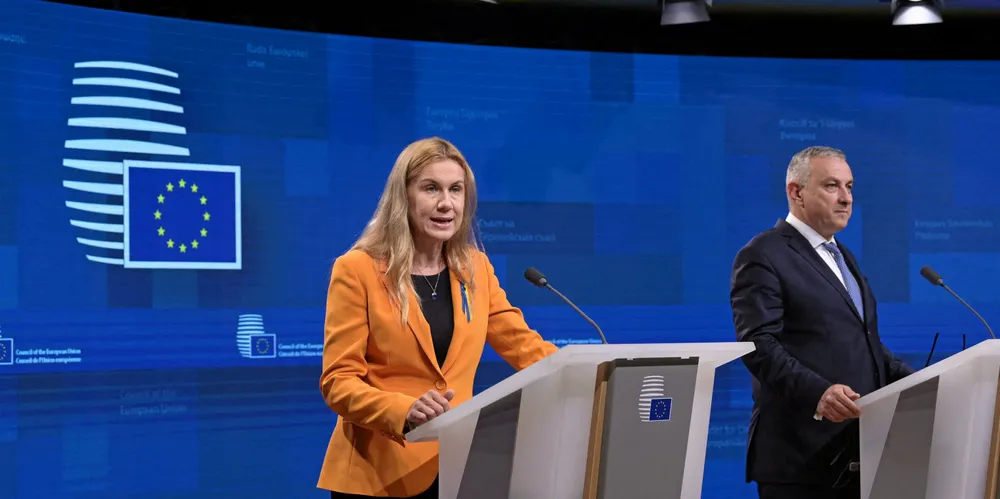Revenue cap for renewables to be 'set at level that maintains incentives to invest' | EU's Simson
EU energy ministers at difficult emergency meeting ask European Commission to come up with more detailed proposals next week to counter energy price crisis

A proposed revenue cap for low carbon energy generators will be set at a level that still maintains incentives to invest in renewables, European Energy Commissioner Kadri Simson said after an emergency meeting among EU energy ministers.
“We need instruments that will ensure a fair distribution of revenues that are currently enjoyed by some in the energy sector,” Simson said at a press conference after the energy council, adding that revenues are driven up to unprecedented levels by the price of gas which currently determines the final price in wholesale power markets due to the merit order mechanism.
“We will design our new framework in a way that will allow national schemes to continue, if they are consistent with this objective. We will set the cap at a level that preserves incentives for investments in renewables,” Simson assured.
Politicians seem to consider the objections by the renewables sector about a revenue cap to be exaggerated.
Patrick Graichen, state secretary for climate in Germany's economics and climate ministry, told a Baltic Sea conference in Berlin Monday that no one in the industry had calculated with wholesale power prices around €500/MWh as seen at times last week.
"Nobody can tell me that a project is no longer economical if it is only €100/MWh," Graichen said.
"Everyone I talk to out there - and we did that a lot when it came to the auction design - is talking about €70/MWh as an income target for the next 10 years and after that it becomes uncertain. €500, no way!"
Simson Friday added income generated by the revenue cap “must be used by member states to fund support measures to energy users and reduce the price paid by households, SMEs and industries.”
The energy commissioner stressed that it made no sense to introduce a revenue cap for low carbon sources, while leaving fossil source producers untouched, whose “income swelled.” The commission plans to propose a ‘solidarity levy’ on fossil revenues to help consumers and companies, she said.
Division on price cap for Russian gas
The most controversial measure being discussed Friday was a proposed price cap for piped fossil gas from Russia, said Jozef Sikela, industry minister of the Czech Republic, which currently holds the EU’s rotating presidency.
“We need to elaborate a little bit more on the impacts,” Sikela said at the press conference.
“There is a prevailing view of the countries that we need as an emergency measure a certain cap, but please give the commission and us a little bit more time to fine-tune where properly in the sequence the cap should be implemented.”
Hungary and Slovakia ahead of the energy council had rejected a cap on the price of gas supplied by Russia, due to their still high dependency on gas flows from the country.
Russian President Vladimir Putin also had threatened to end all energy exports to the EU, if a price cap were to be imposed.
If needed, another extraordinary meeting of EU energy ministers will be convened before the end of this month, Sikela said.